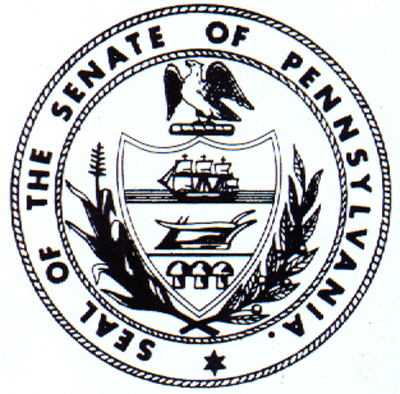|
|
||||||
REPUBLICAN GAMBLING PLOYS WILL COST PENNSYLVANIA JOBS HARRISBURG, October 6, 2004 – Efforts by Senate Republicans to repeal from the Gaming Act a requirement that slot machines be sold through Pennsylvania distributorship companies would cost the state jobs and business opportunities, state Senator Vince Fumo (D-Philadelphia) said today. The new law legalizing slot machines, enacted this past July, calls for machine manufacturers, most of whom are based in other states, to sell their machines to Pennsylvania casinos through companies that are headquartered within this state. The intent of the provision is to create additional business opportunities for Pennsylvanians in the budding gambling industry here. Initially, authors of the bill considered requiring the manufacturers to actually make the machines in Pennsylvania, but that didn’t seem realistic. So they settled on the distributorships as a way to keep some of that money in Pennsylvania’s economy. "This is a way for small business people to reap some of the economic rewards of gaming along with the big machine manufacturers and the big gaming corporations who are going to apply for the licenses. And it will give jobs to Pennsylvanians who will sell, deliver, install and maintain the machines," Fumo said. Fumo, who avowed that he has no intention of applying for a distributorship license himself, planned to offer an even stricter prohibition on the floor of the Senate. His amendment to SB 1209 would have banned all members of the General Assembly and their families from having any ownership stake or deriving any direct or indirect income from a gaming operation, including distributorships. That amendment and others, however, could not be offered because of a parliamentary maneuver by the Republican majority. They cut off debate and pre-empted the opportunity to amend the bill, despite assurances made in public earlier in the day during a Rules Committee meeting by the Republican leader that Democrats would have a chance to offer their amendments. At the same time, Republicans chose to allow some family members of legislators to have an ownership interest in casinos, or to have a business relationship such as a consulting or lobbying contract with gaming companies. In the process of changing a provision that bans public officials from owning more than one percent of a slot operation by reducing it to zero, the Republican majority exempted their adult children from the ban. "This is an enormous loophole in the ban, which would allow public officials to acquire ownership in slot parlors by simply putting it in the name of their adult children. I would note that the state Ethics Act does not distinguish between adult and minor children," Fumo said. Democrats also pointed out that Republicans reneged on commitment to work with them to reach a consensus. Having had no opportunity to participate in the writing of the legislation, Democrats wanted to offer their ideas as a series of amendments on the floor. In addition to amendments to make the public official ownership ban apply to adults, or "emancipated" children, and the amendment to prohibit all family members of legislators from obtaining any income from gaming operations, the amendments would have done the following: Increased funding for gambling addition by 0.5 percent of gross terminal revenue. Increased funding for volunteer fire companies by 1 percent of gross terminal revenue Created a grant program of 1 percent of gross terminal revenue to reimburse the attorney general and district attorneys for enforcement of the Gaming Act. Created a grant program of 1 percent of gross terminal revenue to reimburse the State Police for enforcement of the Gaming Act. Increased the money for property tax relief by 2 percent, from 34 percent of gross terminal revenue to 36 percent. Made it a felony carrying a fine of up to $10,000 and up to five years in prison for violating the public official ownership ban. Clarified that the law allows incorporated municipalities to apply for one of the two available resort licenses. Added 80 cents per acre in payments to local jurisdictions for state forest, parks and game lands, in addition to the payments included in the original act. Required certain public officials to file annually a statement with the State Ethics Commission that they had complied with the prohibition on financial interest. Repealed the Gaming Act so that it could be renegotiated after public hearings. Added Philadelphia to the counties included among those whose local zoning boards must approve the location of casinos. None of the amendments could be offered because Republicans took the unusual step of moving the previous question, thus preventing further debate before a vote must be taken. The changes that passed the Senate would have to be approved by the House and signed by the Governor before taking effect. # |


